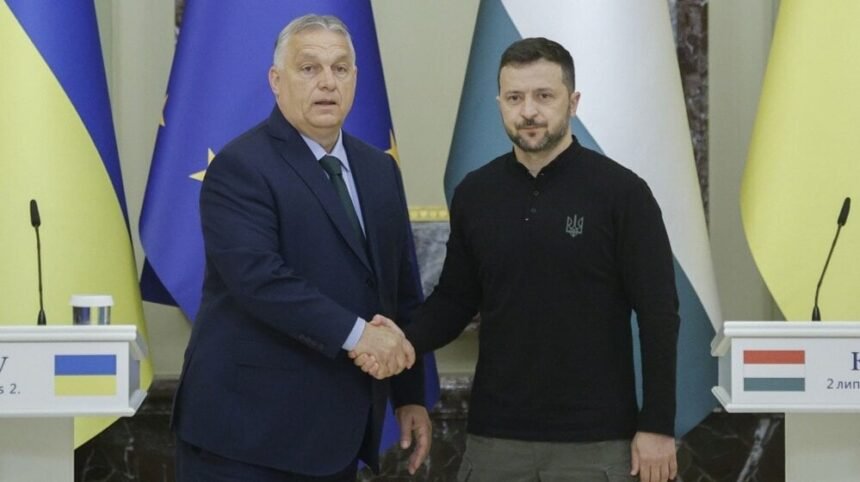High-ranking European Union officials visiting Ukraine delivered a clear message: Kyiv still has much to do to secure EU membership, while the EU works to navigate Hungary’s opposition to Ukraine’s accession.
Hungary’s Opposition
Ukraine needs the support of all 27 EU member states to progress, but Budapest has blocked the next phase of accession talks, citing concerns over the language rights of ethnic Hungarians. This stance has frustrated other EU countries. EU Enlargement Commissioner Marta Kos recently met with Hungary’s minority in western Ukraine to ease tensions.
A Beacon of Hope
For many Ukrainians, EU membership represents hope for a prosperous future, decades after independence from the Soviet Union. The 2014 ousting of pro-Russian President Viktor Yanukovych and Russia’s ongoing war against Ukraine have strengthened the appeal of EU integration. However, attempts to restrict the independence of key oversight bodies this summer raised concerns among EU governments about Ukraine’s rule-of-law compliance.
“The EU cannot accept a new member that does not fully respect the rule of law,” said Kos, stressing that while showing support is important, being strict is part of demonstrating commitment.
Navigating Orban’s Resistance
EU officials indicated that if Ukraine continues reforms and fully adheres to rule-of-law principles, there will be ways to circumvent Hungarian Prime Minister Viktor Orban’s objections. Danish Prime Minister Mette Frederiksen affirmed:
“I will not allow one country, especially Viktor Orban, to decide the future of Europe.”
Rule of law remains central, particularly following July 22, when Ukraine attempted to increase control over the National Anti-Corruption Bureau and specialized prosecutors—a move quickly reversed after protests but still noted by EU partners.
The Long Road Ahead
EU Commission President Ursula von der Leyen previously suggested Ukraine could join before 2030, though some officials consider that unrealistic. EU diplomats highlight Ukraine’s strategic importance, the complexity of accession, and the challenges posed by ongoing Hungarian opposition.
Some EU officials propose continuing technical work with Ukraine without formally opening accession clusters, as changing rules requires unanimous consent from all 27 members. Ukraine has committed to a pragmatic approach, advancing reforms while awaiting favorable conditions.
Public Support
A Eurobarometer survey (September 2025) shows 52% of EU citizens support Ukraine’s accession if all criteria are met, with notable differences across countries—91% in Sweden, 48% in France, and 28% in the Czech Republic.
Kos emphasized that the EU has time to address concerns from each member state and ensure a smooth path forward.







